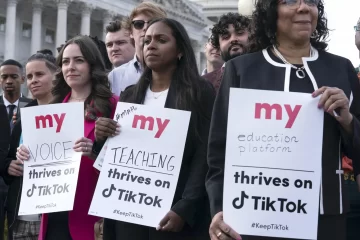
Last week marked the inauguration of Ashraf Ghani as the new president of Afghanistan. The US and UN have congratulated Afghans on completing the first democratic power transfer in Afghan history. The irony of this statement is that the introduction of the new government is neither democratic nor a power transfer.
Ashraf Ghani’s announcement as President came following an election that was marred by fraud and deadlocks. Following the first round Ashraf Ghani and his rival candidate Abdullah Abdullah emerged as the two candidates that would progress to the second round of the elections. Abdullah led the first round with 45% of the vote share as opposed to 31.5% garnered by Ghani. On the ground, the election showed much promise as more than 6 million Afghans turned up to the polls, bearing the risk of danger from the Taliban to engage in this newfound democracy.
The optimism for a peaceful democratic election soon ended as the second round of voting approached. In this round, turnout jumped to 8 million, a leap which could not be accurately explained since reports on the ground contended that the turnout in most areas was in fact less than in the first round. The preliminary results announced that Ashraf Ghani had claimed this round with 54% of the votes whilst Abdullah’s share remained at 45%. During this time allegations of fraud began to emerge claiming that the Independent Election Commission (IEC) had been colluding with Ghani’s camp to ensure his victory. Evidence of this shows a cozy relationship between Ghani’s camp and the IEC’s main secretariat, Zia ul-Haq Amarkhail. Audio recordings emerged of Mr. Amarkhail allegedly directing ballot-stuffing in favour of Ghani. Although the recordings were never proven to be genuine, Amarkhail resigned as a result. Other sources from government officials and on the ground observers also claimed that the IEC was orchestrating Ghani’s victory.
The US Naval Research Laboratory using every balloting model at their disposal concluded that a legitimate victory for Ghani was mathematically impossible. The New York times reported that the fraudulent votes recorded for Ghani amounted to 2 million. There was also fraud on Abdullah’s side as he is claimed to have 800,000 illegitimate votes. Removing these illegitimate votes would mean that Abdullah would emerge as the president.
To ease such allegations of fraud an audit of the ballots was agreed with the help of an emergency intervention by US Secretary of State John Kerry. This was hailed as a possible solution to the near industrial level fraud witnessed during the campaign. Optimism again soon dwindled as the procedure of the audit failed to identify the bulk of the fraudulent votes and its subsequent result didn’t change the outcome of the election.
To the US and NATO, it was therefore clear that the election outcome was far from legitimate, however that didn’t seem to be an issue, as they internationally praised Ghani’s victory. Rather than investigate thoroughly the allegations, the US sought a quick fix solution in the form of a government of national unity (GNU). In this scenario everybody becomes a winner and power is shared between the two camps. Because of this agreement the past Afghan elections becomes irrelevant. The optimism Afghans had for a democracy was crushed as their participation in the electoral process amounted to nothing. The US in a desperate attempt to restore stability to the region employed the GNU to essentially silence the Afghan problem whilst they deal with the blowback from their actions in Iraq.
From this scenario we can see that the western world, displaying itself as a beacon of freedom and democracy, only seek to enforce their ideals when it suits their interests. In the Afghan case, rather than commit to the democratic process and not invalidate the right of Afghans in choosing their president, they sought the easy option. This sentiment was well articulated by Atta Muhammad Nur, a key backer of Abdullah, who has called Ashraf Ghani a president-select rather than a president-elect.
For an Afghan it is hard to have faith in a democratic process, as so far with three elections there has yet been a democratically elected president. Each case brings a host of allegations and foul play. For critics it may appear as if the country is unsuitable to a democracy, but has it been given a chance? One thing that is striking is the energy and excitement witnessed by Afghans as the elections this year approached. Millions queued outside polling stations patiently waiting hours to have their turn to partake in a democracy. These people want a democracy but are prevented by elites and foreign occupiers.


